I don’t really know why Kamala Harris lost. The best explanation I’ve seen is that Harris ran into a buzzsaw of anti-incumbent post-pandemic disillusionment that has played out across the developed world. You can add more strategic or tactical explanations about her candidacy — the timing of Biden’s exit, specific themes she pursued — but I am not sure it overwhelms this.
This sort of broad structural explanation is not terribly satisfying, especially if you are a pundit who is paid to have a take on what happened. And it turns out that the explanations for Harris losing correlate pretty well with the pundits’ pet peeves. And so, if you have been complaining about wokeness, or campus politics, for the past few years, it is obvious that this is at the heart of Trump’s win.
Lets’ take some examples. Bari Weiss said
it turns out that running on these extraordinarily niche issues like gender fluidity or defunding the police or any number of things that people in places where I live get extremely excited about don’t actually matter or frankly, feel profoundly out of touch to ordinary Americans. So if “progressive” is about, you know, these niche issues that you find in on college campuses and in gender studies department, and you want to keep doubling down on that, you’re going to continue to lose.
Or Bret Stephens:
Concerned about gender transitions for children or about biological males playing on girls’ sports teams? You’re a transphobe. Dismayed by tedious, mandatory and frequently counterproductive D.E.I. seminars that treat white skin as almost inherently problematic? You’re racist. Irritated by new terminology that is supposed to be more inclusive but feels as if it’s borrowing a page from “1984”? That’s doubleplusungood. The Democratic Party at its best stands for fairness and freedom. But the politics of today’s left is heavy on social engineering according to group identity. It also, increasingly, stands for the forcible imposition of bizarre cultural norms on hundreds of millions of Americans who want to live and let live but don’t like being told how to speak or what to think.
The maximalist case came from the nominally liberal op-ed New York Times’ writer Maureen Dowd.
“Some Democrats are finally waking up and realizing that woke is broke” says Dowd. The basic narrative is that Democrats forgot real working class Americans in their quest to play identity politics. This is not a terribly new claim. Dowd argues that Dem candidates have been doing this since 1988.
Democratic candidates have often been avatars of elitism — Michael Dukakis, Al Gore, John Kerry, Hillary Clinton and second-term Barack Obama. The party embraced a worldview of hyper-political correctness, condescension and cancellation, and it supported diversity statements for job applicants and faculty lounge terminology like “Latinx,” and “BIPOC” (Black, Indigenous, People of Color).
Lets unpack this a bit. Dukakis was the son of immigrants who ran against a scion of an American political dynasty. Gore and Kerry lost to the next generation of that dynasty. Second-term Barack Obama defeated a hedge-fund leader whose father was a Governor. Clinton lost to a man who lived in a golden mansion.
To run for President certainly implies some elite status. But relative to who they were running against, the Democrats Dowd lists are not “avatars of elitism” by any stretch of the imagination, unless elite is drained of any signifier of political or economic power. Which of course is the point. The elites today are not the billionaire President or his plutocrat backers, but the adjunct faculty member who talks about Latinx people.
By this point, two things should be clear to you. “Identity politics” is a bad thing. Moreover, it is bad politics, a foolish type of politics for Harris to have engaged in.
It gets worse. Again, from Dowd:
On CNN, the Democratic strategist Julie Roginsky said that Democrats did not know how to talk to normal Americans. Addressing Latinos as “Latinx” to be politically correct “makes them think that we don’t even live on the same planet as they do,” she said.
At this point, you should be feeling a little suspicious. When is the last time you can remember a Democratic politician using the word “Latinx” or making such messaging a central part of their campaign. So I went to Harris website and her primary policy document. It has a Spanish language option, whereas Trump does not. And it talks about economic opportunity for Latino men. No mention of Latinx, of transgender, or LGBT.
It is not the case that Democrats don’t use the term at all. But it is relatively rare. If the case for excess identity politics is the use of the term “Latinx” you should be able to offer some more compelling examples. Which brings me to my first point:
Harris Did Not Run On Identity Politics
She did not open every event by introducing her pronouns, before swinging into a stump speech challenging the right of the state of Israel to exist, demanding trans athletes be allowed to compete, before concluding by calls to defund the police.
According to Weiss, Stephens and Dowd, focusing on transgender issue was another bad strategic choice by Harris. And again, the evidence here is pretty thin. When asked, Harris offered some language about the dignity of trans people in her campaign, but made little in the way of firm commitments to support trans rights, and certainly did not make the case for putting trans athletes in sports. She did not “run” on these or other identity issues.
You will never guess who did run on trans issues: Donald Trump. He attacked them in rallies, and in a series of ads. Again from Dowd:
The Trump campaign’s most successful ad showed Kamala favoring tax-funded gender surgery for prisoners. Bill Clinton warned in vain that she should rebut it.
James Carville gave Kamala credit for not leaning into her gender and ethnicity. But he said the party had become enamored of “identitarianism” — a word he uses because he won’t say “woke” — radiating the repellent idea that “identity is more important than humanity.”
This is an an extraordinary passage. It undermines the entire premise of Dowd’s piece. Harris is guilty of identity politics not because she ran on the most basic aspects of identity, gender and race. She didn’t! It acknowledges that Trump was the one pushing the anti-trans politics. It seeks to both reserve the moral high ground - rejecting the “repellent idea” that identity is more important than humanity - while also charging Harris with engaging in identity politics by not joining in anti-trans attacks. The logic cannot hold under any circumstances, but to even make the claim, you have to start with the premise that a defense of “humanity” compels attacking certain groups whose humanity is not worth defending.
Elsewhere, and I am not kidding about his, the article makes the case that it was a strategic mistake for Harris to campaign with Beyonce:
when many of the struggling working-class voters she wanted couldn’t even afford a ticket to a Beyoncé concert, much less a down payment on a home. “I don’t think the average person said, ‘Kamala Harris gets what I’m going through,’” this Democrat said.
This passage is not really about identity politics, but is indicative of how dopey you have to be to nod along to these claims. If your argument cannot hold up against the most obvious counterclaim — Trump’s campaign strongly featured the presence, social media support, and money of the richest man in the world, and it didn’t hurt him — maybe your claim about how voters were put off by wealthy advocates just is not very plausible.
So, the basic claim that Harris campaigned on identity politics issues simply does not hold. Which makes it hard to land the subsequent claim that she lost because of these issues. Just before the election, Jeremy Peters at the Times wrote a piece about how identity politics was very much not a feature of the Harris campaign.
Those on the left were left complaining or biting their tongue when Harris campaigned with Liz Cheney, took a centrist approach to immigration, or when the Democratic convention did not feature Palestinian voices critical of Israel.
So how does Dowd, Weiss, Stephens et al confidently assert the identity politics claim? These takes exist because this is a lazy pre-existing narrative to be sold, not because of any actual analysis of the electorate. These are writers who for various reasons have committed to an anti-woke narrative. And once you have committed to that narrative, you are determined to force it into every story, no matter how misleading.
What is true: Trump, and the right, are very good at taking basic respect and empathy for other humans, and portraying that as dangerous: social justice, wokeness, diversity, equity and inclusion have all been converted into terms of mockery. Trump did not win because someone you were on a zoom call with used pronouns, or Latinx, or some college grad corrected you for using the word homeless. You might find all of those things annoying, but it’s not a reason to excuse truly radical politics in America. He especially did not win because Democratic politicians went all in on those themes, because they did not. It could be that Dems lost support because they did not throw vulnerable groups under the bus, but that is a different argument than claiming they campaigned on those topics.
Trump Did Run On Identity Politics
You know who did run on identity politics? The person who will be President next January.
As noted above, Trump directly attacked trans people. And an extensive list of other groups, most notably immigrants. He even opposed bipartisan legislation on immigration because doing so would have robbed his chief talking point on campaign trail. He used false claims to denigrate those groups as deviants and threats to Americans.
This is identity politics.
There are many more examples. Trump deliberately targeted disaffected young men. This has been celebrated as canny political strategizing, but not identity politics. He described cities in America as hellholes. He boasted of his beautiful white skin as he attacked Harris, whom he claimed had changed her racial identity. He promised to restore the names of Confederate leaders to US military bases. Trump appeals most directly to white Christian nationalists. His advocates last minute pleas to supporters identified by gender their most likely supporters.
The identity politics was especially important because Trump was offering little that was tangible in terms of policy for many of these groups, such as young men or Blacks and Hispanics, beyond the promise of protecting them against immigrants. Even so, the “Dems are elitist” criticism implies that by celebrating identity politics, Dems have made a trade-off sacrificing attention and support to the working class. This implication usually skirts over how Biden policies are feeding a manufacturing boom, and that Harris offered policies that would meaningfully expand the safety net and help the working poor.
For example, Nick Kristof of the NY Times said that: “Democrats can compete if they focus more on minimum wages and child care than pronouns and purity.”
Which is weird, because Harris supported a $15 minimum wage, has proposed lowering the cost of child care for the working poor and even notched some progress on this topic as Vice-President, while supporting a child tax credit expansion. Here is the table of contents for the Harris policy document. It is entirely organized around the idea of driving down costs and increasing economic prosperity. (Yes, it says “middle class” rather than “working class” but that’s likely because most people think of themselves as middle class).
Kristof might say that voters were not aware of this, but it doesn’t much help if their nominal allies in the media can’t get it right. You can’t help but get the feeling that Harris ran the campaign the pundits say they wanted, but that won’t stop them from giving up on the identity politics story they want to tell.
The Media Refuses to Recognize the Right Engaging in Identity Politics
At this point, the term “identity politics” like the term “elites” does more to obfuscate to enlighten. I don’t know if Trump won *because* he engaged in identity politics, but it seems a far more plausible claim than the idea that Harris lost because she had done so. But we can’t have that discussion because the pundit class does not allow that Trump practiced identity politics.
To be sure, there are differences in types of identity politics.
Identity politics is sometimes about establishing empathy and respect for less powerful groups, people who are different from you. This is the kind of identity politics that Harris was accused of engaging in.
Identity politics is also about increasing the salience of shared group markers in order to celebrate that identity while also excluding and dehumanizing outgroups. This is the populist model of identity politics, which requires some outgroups to demonize, and which Trump engaged in repeatedly throughout his political career. He came to power surfing the tea-party claim that Obama was not one of us, not born in the United States. And he spent the last campaign complaining about immigrants “poisoning the blood of our country.” His efforts at expanding his appeal beyond white identity politics still evoked identity: he argued that immigrants were stealing “Black jobs” and “Hispanic jobs” or that teachers would turn your kids trans.
The critique of identity politics of the left is that it is oppressive — you will be cancelled for using the wrong pronouns! But the groups involved are mostly just seeking individual rights, the provision of which does not meaningfully damage the rights of others. By contrast, the identity politics of the right explicitly centers on controlling the bodies and choices of others, and the thoughts and actions of those that disagree with them. They remove books from classroom, tell students what they can learn, deny women reproductive care, or block trans people from serving their country.
Part of the appeal of Trump’s identity politics is the promise of control over others. In the aftermath of Trump’s victory, messaging celebrating the expected control over women exploded on social media.
The economist Noah Smith looked at the demographic differentials of the election and concluded that:
Identity politics did not work for Harris, who did not use them. Perhaps being a woman and the bi-racial child of immigrants is enough to assume that she did so. Some of those demographic differences that Smith points out might reflect that identity politics worked very well for Trump. But it’s hard to reach this conclusion if you cannot admit he engaged in identity politics in the first place. In America, identity politics can only be identity politics if it comes from the left, and if it centers on historically marginalized groups. Right wing politics that emphasize male, Christian and white identity is not defined as identity politics. As the perceived natural order of things, it is seen simply as politics.
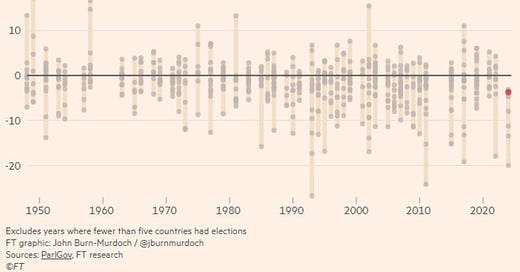





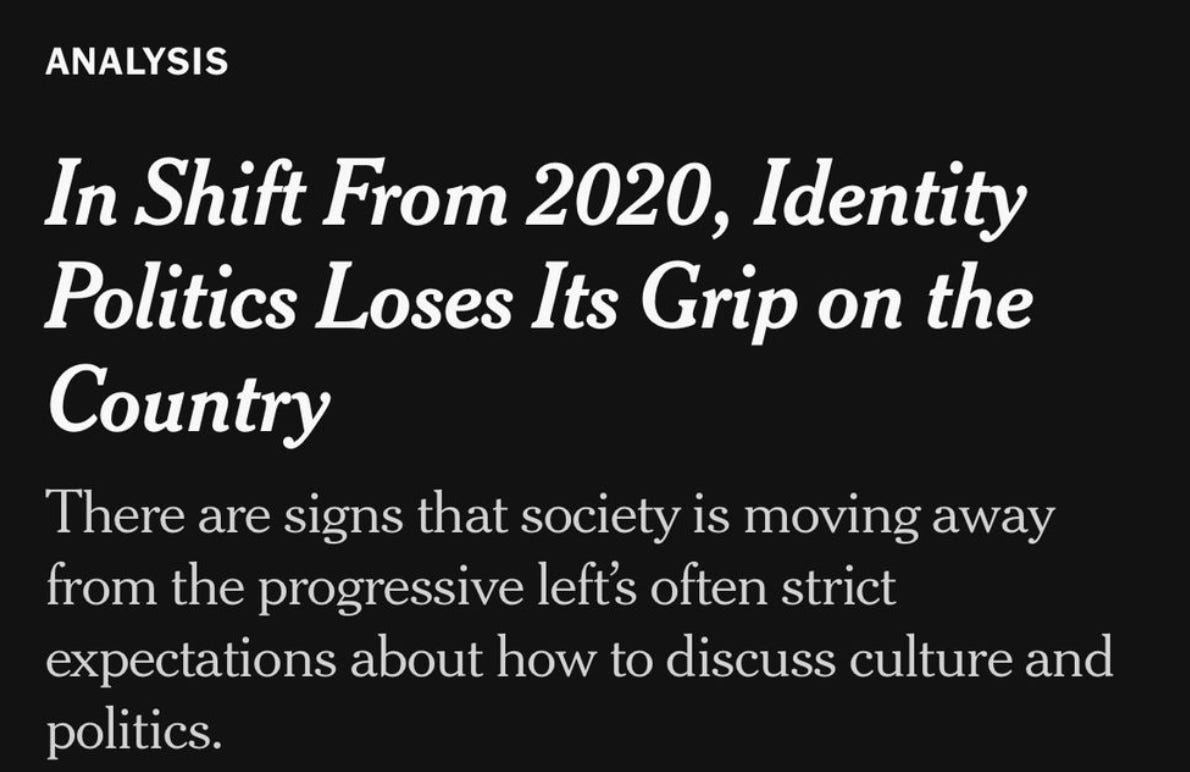
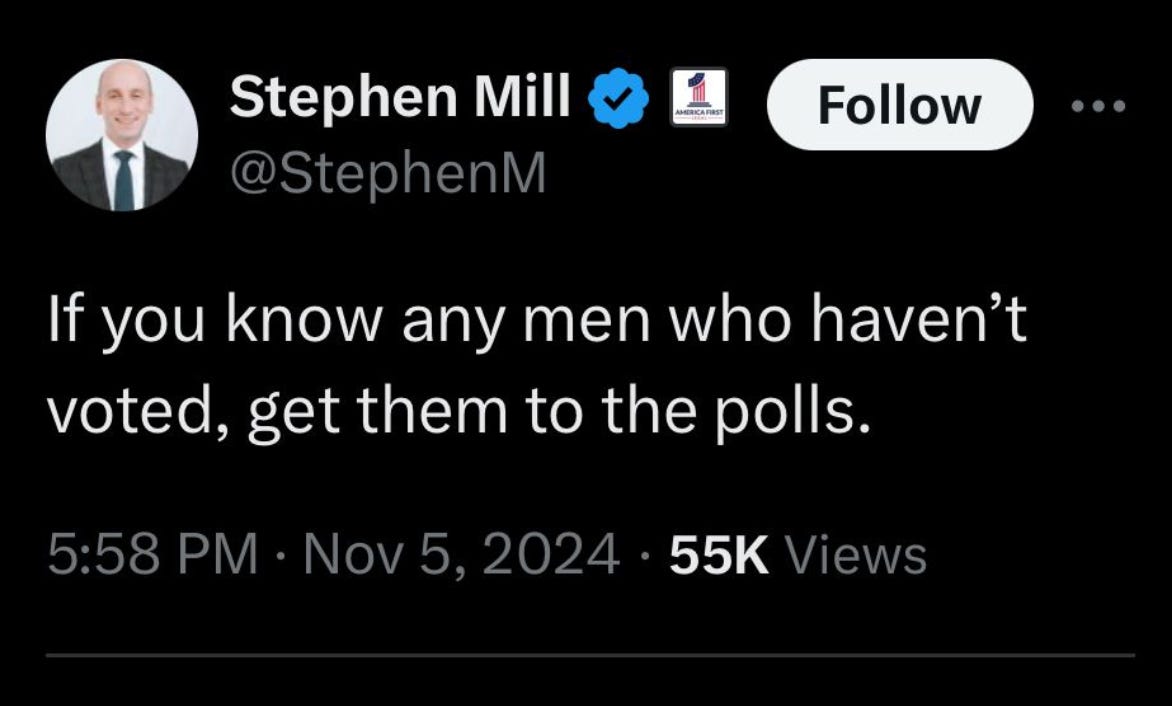

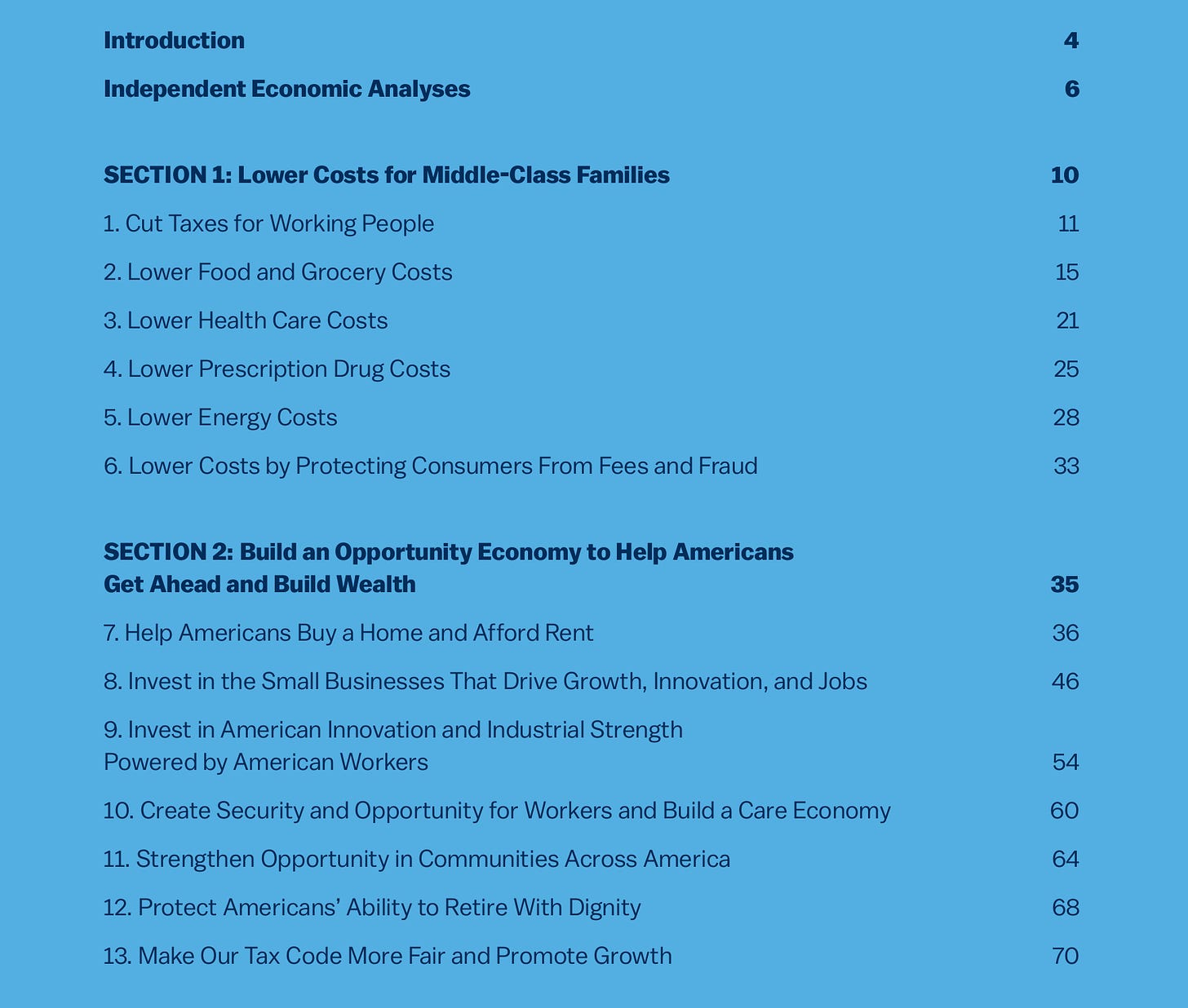
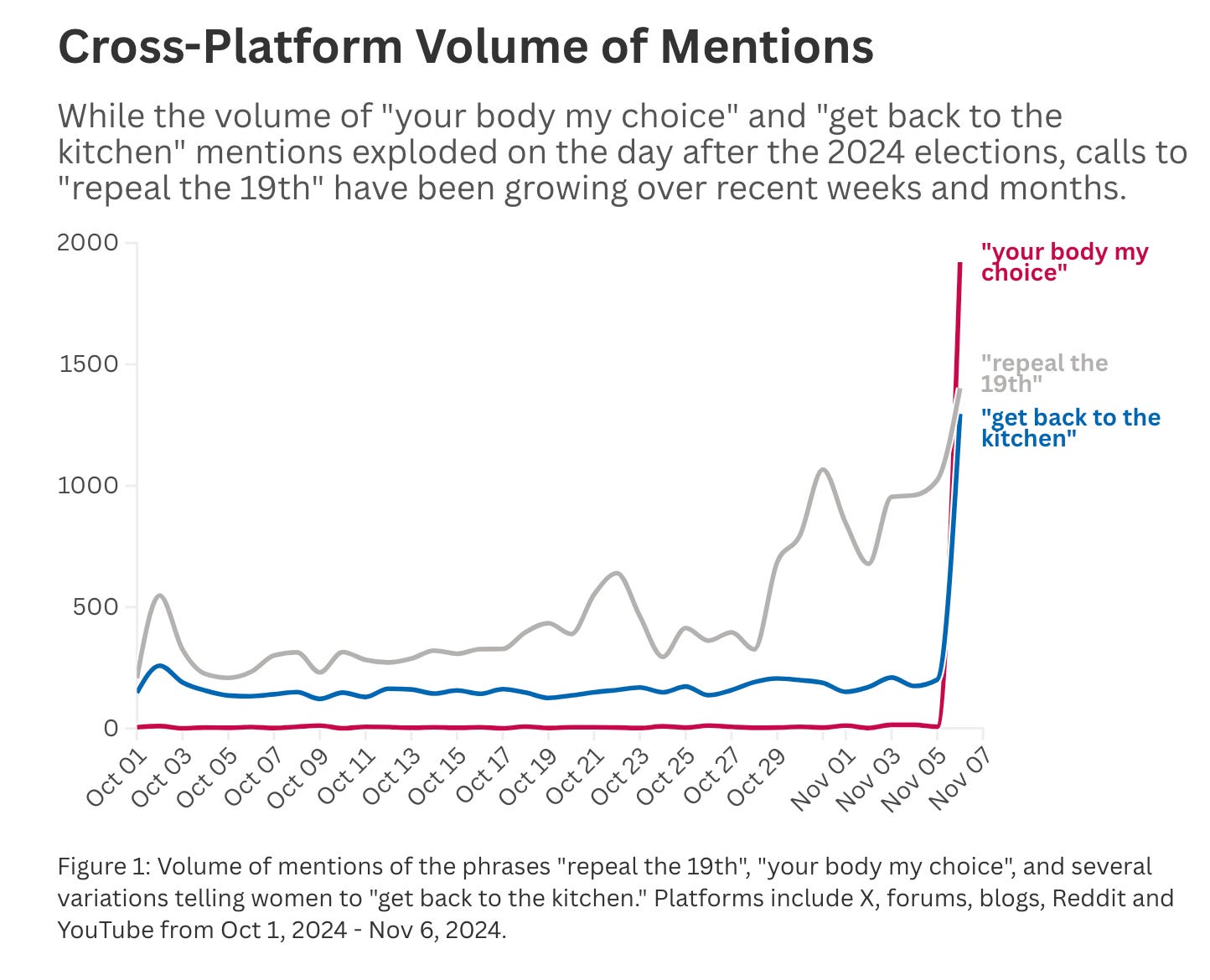

Not only did Kamala Harris not lose because she campaigned on trans rights, but Trump did not win because he did campaign on removing trans rights. Anti-trans candidates and initiatives lost, and the first transgender member of Congress was elected.
I thoroughly agree with your premise and I'm very aware that men especially are allowed to be as hateful as they wish. It's the same attitude that was present with the Access Hollywood tape. Yes, there were words of "disappointment", but ultimately, it was a "boys will be boys" moment and people elected an adjudicated rapist. And yes, as noted below, anti-trans candidates and initiatives lost and the first transgender member of Congress was elected but that's because people see local and state elections in a different light; maybe it's compartmentalization. People may have voted this way on a local and state election but what about the disconnect that the person they voted for as President has the power to ignore and rule against these developments. This is cognitive dissonance. I live in MO where an amendment to the state constitution was passed to allow abortions up until the point of fetal viability as opposed to an absolute ban on abortions (the only exception is the health of the mother which we all know means nothing) but they also voted for Trump who'll use the Comstock Act to ban medical abortions and will sign a national abortion ban.